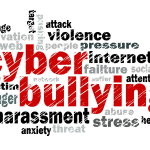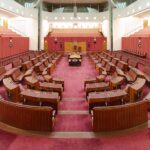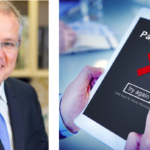Should the Age for Creating a Social Media Account be Lowered?

Australia plans to establish a minimum age limit for children to use social media, citing mental health and physical inactivity concerns.
Personal rights advocates and those who favour the use of legal technology in today’s society are up in arms about how this legislation could negatively impact ‘underground’ online activity, such as private forums and encrypted messaging, which could be forced further underground and become more difficult to monitor.
There is also uncertainty about the efficacy of the proposed laws, with many of the view they will be virtually unenforceable given that users can easily provide platforms with incorrect ages and/or names when creating accounts.
But the government is pressing ahead with what many have described as a flawed response to online bullying and lack of exercise, seemingly believing that banning kids rather than educating them and providing better support systems as well as recreational facilities is the way to go.
Age Yet to be Specified
Prime Minister Anthony Albanese said his Government would test an age verification trial period, which would likely involve a combination of user self-reporting and technological solutions, before introducing the minimum age laws for all social media platforms later in 2024.
Although the Prime Minister is yet to specify the age at which a person is permitted to create a social media account, he said it would most likely be between 14 and 16 years old.
Even though the PM might have good intentions regarding children’s health and wellness, this isn’t to say there aren’t huge potential ramifications. Plus, no other country has done this before, so Australia will have no framework to go off of.
Previous attempts to curb online usage in the European Union have been made, but to no avail—as human rights activists have claimed the laws have reduced the rights of minors.
The potential age minimum would piggyback on the ‘age limits’ set forth by social media platforms. Meta, the owner of Facebook and Instagram, has a minimum age of 13.
However, other platforms, like TikTok and YouTube, have no self-imposed age minimum.
Negative Health Effects of Social Media
Despite the potential disruption of minor’s rights, Albanese states that limiting a child’s online screen time is not only good for their physical well-being but for their mental health.
This measure could potentially alleviate the negative health effects associated with excessive social media use, providing a sense of reassurance about the government’s intentions.
Limiting a child’s time on the phone or computer encourages them to find other hobbies and activities that are more physically active.
Studies have shown that social media use has been tied to poor physical health, with teens who excessively use social media platforms having higher levels of C-reactive proteins (a precursor to diabetes), back pain, chest pain, and headaches.
Plus, the age of social media has seen a rise in anxiety and depression — a study showed that teenagers aged 12-15 years old who use social media more than three hours a day face double the risk of having negative mental health symptoms than those who do not.
This alarming statistic underscores the potential risks of social media use for children, fostering a sense of concern and support for the government’s actions.
Infringing on Minors’ Rights
Even though limiting a child’s screen time can be beneficial for their mental and physical health, proposing age verification leads to the issue of limiting free speech and access to the internet, which can hint at a greater threat of censorship.
The Australian Government is already trialling different tactics for age verification and will determine the official age limit for the various social media platforms once testing is complete.
The Government will create legislation that coincides with each state’s laws to avoid local rule changes.
For example, South Australia has been among the most active states in encouraging the law to be passed and pushing for a lower age limit.
The state proposed legislation that would make social media platforms ban children under 13 years old from having access to their sites.
South Australian Premier, Peter Malinauskas, stated that ‘early access to addictive social media is causing our kids harm (and it is) no different to cigarettes or alcohol.’
The debate about age verification has been ongoing for some time now in the Australian Government. In May 2024, Albanese stated that ‘doing nothing is not an option’ after the Sydney stabbings and the prevalence of violence against women. He claimed that spreading misinformation and misogynistic content on social media can lead to unwanted violence in society.
Therefore, the Government had already proposed back in May 2024 during its announcements on men’s violence that they wanted to create an age assurance technology to ‘protect children from harmful content’.
This initiative underscores the government’s commitment to ensuring children’s safety in the digital space, instilling a sense of security in the audience.
Although the idea has been circulating in the Australian Government, it has been rejected several times. In March 2023, the eSafety Commissioner pushed for age verification technology to limit the availability of pornography to children.
However, three months later, the response stated that age verification technology was not yet ready but was developing.
State officials and the country’s legislation may face backlash from many individuals and human rights groups who argue that attempting to control social media is an infringement on a person’s privacy.
Australian Censorship
This isn’t Australia’s first attempt to censor social media content. In 2024, Australia’s eSafety Commissioner attempted to get X to remove footage of a terrorist stabbing in a church in Sydney. The eSafety Commissioner noted that the video footage needed to be removed from the platform to prevent unrest in the community.
But X stated that it would not remove the video and that Australia had no right to demand global censorship of it. Instead, the platform blocked the video solely for Australian users. This led to the Commission instigating a lawsuit against X, which it later withdrew.
Furthermore, a draft of the Communications Legislation Amendment (Combating Misinformation and Disinformation) Bill 2023 was officially published on 24 June 2023, with the first indication of these proposed laws back in March 2022. The ACMA has a set of powers regulating misinformation and disinformation on digital platform services.
Now, it has the power to make digital platforms keep records and report to the ACMA. The new bill allows the CMA to obtain information, evidence, and documents from digital platform providers, inhibiting free speech and data privacy.
Lastly, censorship of social media and restricting minors’ access to social media platforms raises questions about how much data the government will be able to access. The Privacy Act 1988 protects an individual’s privacy and regulates how the Australian Government can gather and handle personal information collected online.
The Privacy Act 1988 does the following:
- Tells individuals how their personal information is collected and who it is shared with,
- Allows individuals to access their personal information,
- Allows individuals to correct their personal information,
- Allows individuals to stop receiving direct marketing, and
- Allows individuals to use a pseudonym.
For the Government to ban children under a certain age from using social media platforms, it must receive ‘Consent’, as defined in APP 3.3, to collect sensitive information from an individual.
A Step Too Far?
Many believe the Australian Government is taking censorship a step too far with the proposed legislated age restriction,
Having access to the Internet is freedom of speech and access to information from around the world—limiting informational sources can lead to further censorship and infringements on personal rights in the future.
The uncertainty surrounding the proposed rules and how they are meant to be enforced have led many to see them as a populist, knee-jerk reaction to a social issue that can only be addressed by educating and supporting youth – a cultural shift that cannot occur by simply banning children.






